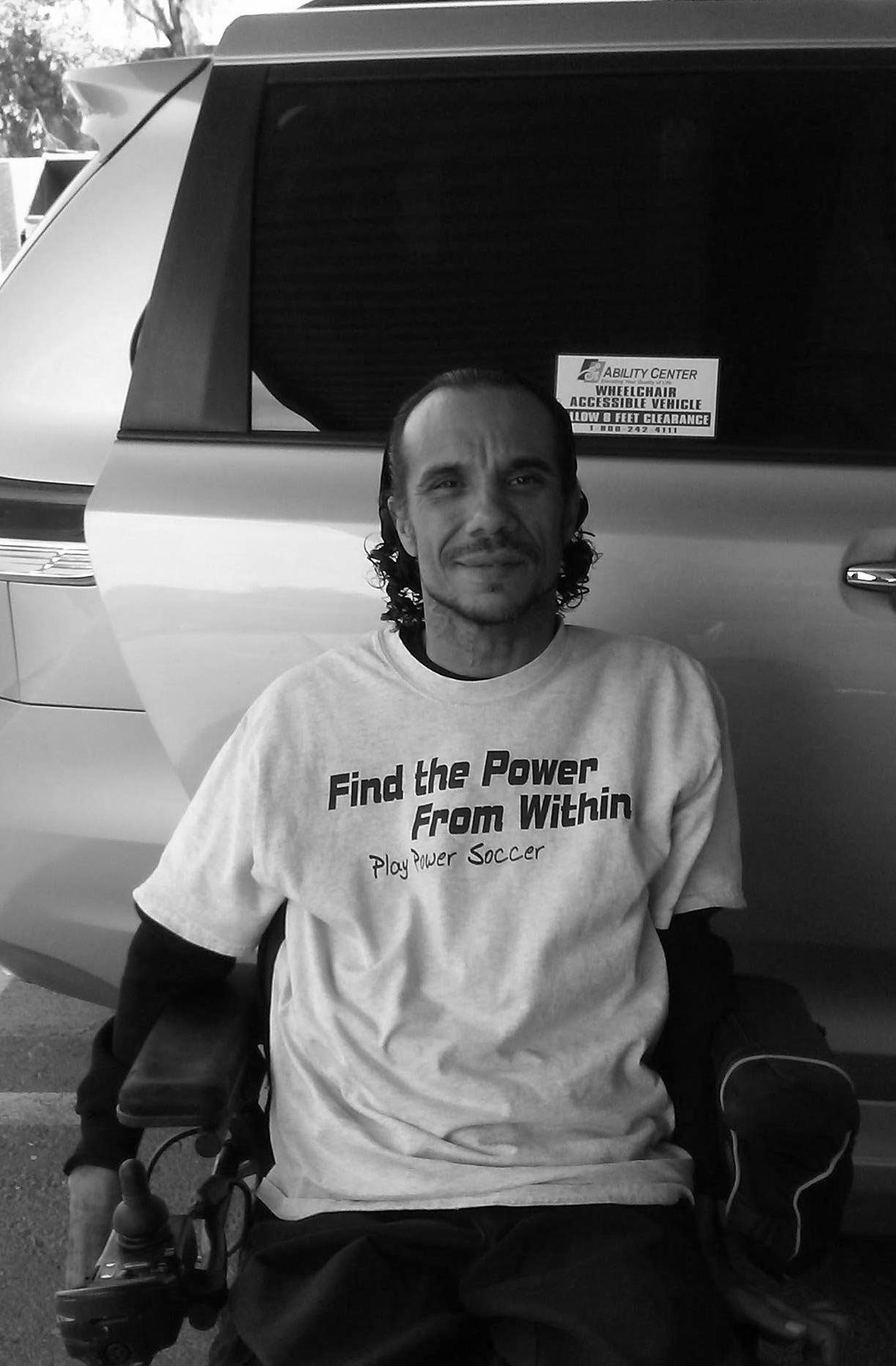Guns were accessible to me growing up. A lot of parents had them lying around the house. From the time I was 13, I knew of incidents that were gun-related, but not necessarily violence-related. Kids being kids and not thinking about the consequences that came along with playing with guns.
By the time I was 17, I had my own guns. My personal experience was gang-related; I used them as protection or for intimidation, just so that people knew that, you know, “Ah, he carries a gun, so you don’t really want to mess with him.” I also liked fighting —boxing and wrestling — as entertainment. But I learned that fighting when mixed with guns, could turn into a bad situation.
One day, I got in a fight with another kid. He took off and then came back. We squared off again, but this time he brandished a firearm and shot me in the neck. I sustained a C6 spinal cord injury, which paralyzed me.
After the shooting, I went through about a year of deep depression. But as I got involved with a few disability rights groups, I began understanding that my life was not over. I could still do the same things that able-bodied people did, but I just had to learn to do it differently. I decided to graduate from high school. Little did I know, my whole life’s transformation was about to start.
I went to an accelerated high school, where people can catch up on credits after leaving or dropping out of school for whatever reason. So many of my classmates had been traumatized by violence. Some were still involved with gangs, getting hurt. We came from different neighborhoods and had to deal with each other in school, which was causing friction. One of my teachers once told me, “You’re the one who can bridge the gap. When you tell them what happened to you, they may be compelled to stop the violence. They see it can cause death or serious injury.”
We called a meeting in the cafeteria and called it Students Against Violence. “We’re here to focus on our commonalities, not our differences,” I told the group. “We all want to get educated; we all want to do something with our lives.” We held another meeting, which was packed. There wasn’t even room to walk.
By my second year in junior college, my activism really took off. I decided to study to become a social worker, and I organized a mentoring program in Phoenix for dads who were former gang members just getting out of jail. My old teacher saw a write-up about it and got a hold of me, asking me to come work with a nonprofit she had started called Peer Solutions, which is all about peer-to-peer mentoring and talking about equity and respect as the normality.
I never stopped.
I saw more and more where I fit in, advocating on behalf of people that have injuries or who just want to stop violence, period. Now I teach an elective class called Community Impact, where we talk all about social injustice. We use a curriculum by Dr. Martin Luther King’s daughter, Dr. Bernice King. I also work for another organization that allows young people who are getting their GED or diploma to learn a trade at the same time, so they’re paid for going to school. I still mentor young people who have been injured; I’ve worked with some for years.
My work has put me on so many different platforms of advocacy, which has helped me become a stronger person. I still struggle with depression sometimes, when I have to miss a day of work because of personal care challenges related to being disabled. But knowing I have a cause helps me.
You see, gun violence is so widespread. It’s not just gang-related; it could be experienced by people just sitting at a movie or at a club. That links us together as survivors. “Don’t shut down that little voice in your heart that says, ‘Say something,’” I tell people. “Share your story. You never know whose life it’s going to change.”
We have strength in our commonalities. You can help ignite the fire that changes the world— that changes us.
by James Hinckley, as told to Sarah J. Robbins
